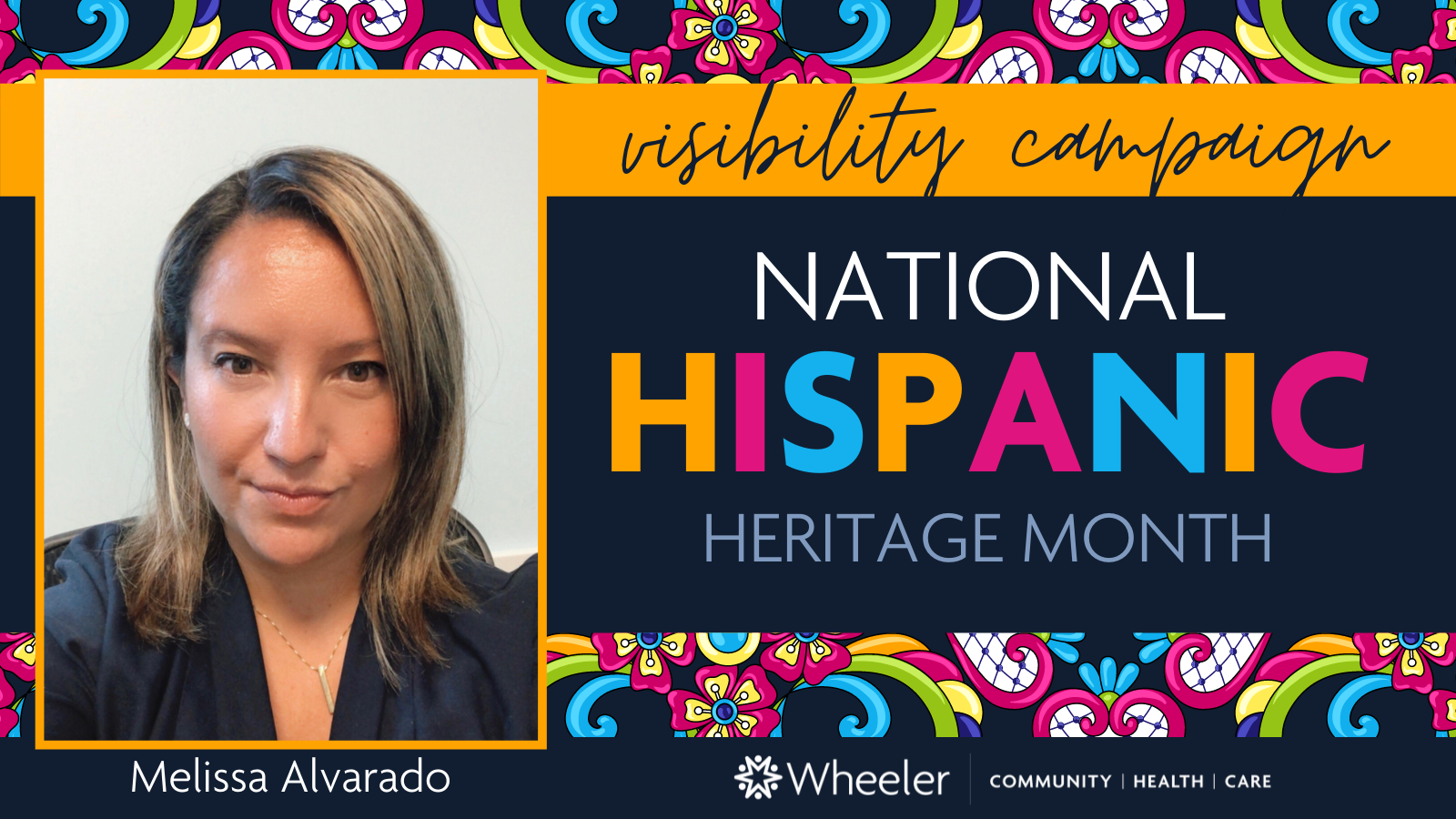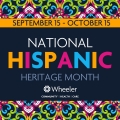Hispanic Heritage Month Visibility Campaign: Melissa Alvarado

September 15-October 15 is Hispanic Heritage Month, an opportunity for us to continue our Visibility Campaign series and revisit our commitment to diversity, equity, and inclusion. This month we will increase visibility of our Hispanic staff. Today's spotlight goes to Melissa Alvarado, LMFT, integrated health care supervisor.
Melissa has been with Wheeler for seven years. She began as an intern at Bristol Children’s Outpatient (COP) in 2014. Upon graduation in 2015 Melissa was hired as a clinician at Bristol COP for two years before becoming a Licensed Marriage and Family Therapist (LMFT). In 2017 she transitioned to the Congregate Care department working as a clinician with youth in residential care. In 2018 Melissa transitioned to Crisis Stabilization Program as the program manager. While there she became certified as Calm Every Storm and Risking Connection trainer before landing in her current role.
What are the most significant challenges that Hispanic and Latino communities are facing today and what steps should organizations such as Wheeler take to serve these communities better?
We feel like there is a lack of recognizability as a resource for Hispanic families in the areas we have connections in. We have had multiple family members and people we work with ask for resources of where to go for help with their kids, but don’t know where to go. They will ask my husband because they know he is married to a therapist, and even when it comes to referrals I may give Wheeler as a name, but will also give other smaller group practices that have more Spanish speaking clinicians and that highlight working with Hispanic families. There is also a significant undocumented population particularly in Hartford that are hesitant to access services because of lack of insurance or fear for what information could be disclosed.
I’m not sure how to address this best but recognize it as a barrier. I wonder if Wheeler had a greater presence in the schools if that would help with community awareness that we are a resource. However, on the flip side we would need the Spanish speaking clinicians to be able to service these families, and there simply aren’t enough at Wheeler. And the ones we have are often carrying incredibly high caseloads because of the demand. Language line is available, but I think both clinicians and families would say it’s not the ideal way to access services. I don’t know what else Wheeler could do to recruit bi-lingual clinicians and offer the incentives to stay at Wheeler.
Thank you, Melissa, for sharing today!





